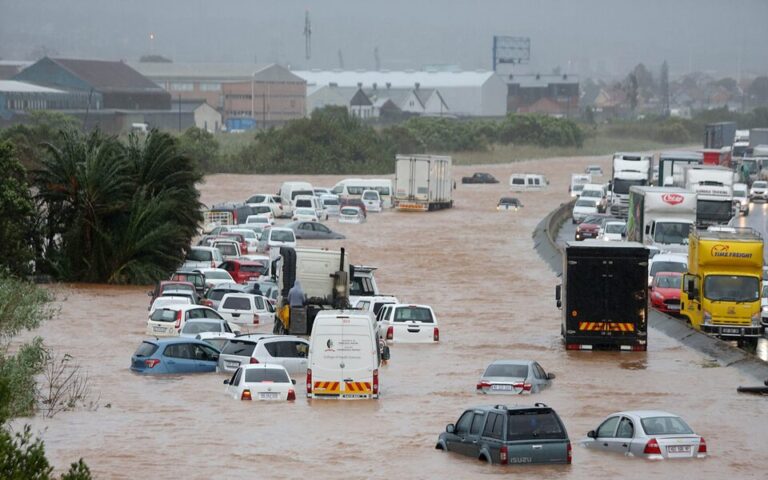Instead of welcoming public participation in the Musina-Makhado SEZ’s approvals process, public officials have resisted transparency and vilified those demanding it.
“Some individuals and organisations elected to become the champions and advocates for the perpetuation of poverty and unemployment among the voiceless poor people of Vhembe district and Limpopo … by unnecessarily delaying this project, which carries the hopes of many to liberate themselves from the shackles of the twin devils of poverty and unemployment. They chose their egos over our people.”
These are the poetically vindictive words of Lehlogonolo Masoga, former Limpopo deputy speaker and now CEO of the Musina-Makhado special economic zone (MMSEZ). The “individuals and organisations” he refers to are several landowners, farmers, NGOs and community groups that had lodged appeals against the environmental authorisation granted to the MMSEZ.
All these appeals were dismissed last month.
Special economic zones are intended to “promote national economic growth and export” by attracting foreign and domestic investment with incentives such as a reduced 15% corporate tax rate. The MMSEZ is a “flagship” programme of the Limpopo provincial government, supported by the national department of trade, industry & competition.
Designated in 2016, the MMSEZ incorporates two huge sites: 7,262ha of farms and bush between Musina and Makhado, and 3,500ha on the banks of the Limpopo River to the northeast of Musina.
The MMSEZ website, which sports Disney-like graphics of a fictional completed development, lists the facilities to be developed at the larger site as including “power generation, a steel plant/stainless steel plant, coking plant, pig iron plant, ferromanganese plant, ferrochrome plant, chrome plating and lime plant”. The smaller site is for “logistics, light industry and agro-processing”.
The “operator permit” for the zone has been issued to SA Energy Metallurgical Base (Pty) Ltd, a subsidiary of Hong Kong-based Shenzhen Hoi Mor Resources Holding Co Ltd.
Shenzhen Hoi Mor is controlled by Chinese national Yat Hoi Ning, who faces serious fraud allegations relating to his tenure as CEO of London-listed Asa Resources Group. The fraud, which Ning denies, is alleged to have happened in Zimbabwe, where police have reportedly issued an arrest warrant for Ning and the company’s former finance director.
From the moment that members of the public got wind of the MMSEZ a few years ago and started asking questions, the government officials involved have been cagey about the details. But maintaining this secrecy became more difficult during the environmental impact assessment process which, by law, requires public participation.
Masoga’s scathing comments refer to all the people who chose, as is their right, to have their say about the MMSEZ.
The MMSEZ will be implemented through the state-owned MMSEZ SOC, wholly owned by the Limpopo Economic Development Agency – the implementing agency of Limpopo’s department of economic development, environment & tourism.
The department is also the adjudicator of appeals against the granting of environmental authorisations for developments in the province. It is therefore clearly conflicted in this instance – a proponent of a project cannot independently assess objections to it.
This patent conflict was raised in the appeals – and dismissed – as were numerous other concerns relating to the project’s climate change impacts, the huge volumes of water it will require in an already water-scarce area, the effect on biodiversity, food security and tourism, and the apparent failure to conduct a proper market analysis to support the business case for the multiple MMSEZ projects.
In the public interest
Masoga is not the first to attack those seeking to exercise their right to ensure that administrative (meaning government) action is lawful, reasonable and procedurally fair. His justification for doing so is that the project will create employment. But while job creation is a crucial issue, it has also become a catch-all excuse for vilifying anyone who demands transparency, accountability and fairness in the exercise of government power.
The MMSEZ may well turn out to be Limpopo’s economic saviour. But it is also blindingly obvious that it has the potential to become a vortex of corruption, mismanagement and broken promises, and that how it is implemented is a matter of enormous public interest.
One of the many grounds of appeal against the environmental authorisation was the purported failure of the environmental consultants to adequately address the potential impact of the project on affected communities – the very “voiceless poor” on whose behalf Masoga claims to speak.
If the proponents of the project really did have the best interests of these people at heart, they would welcome public participation and scrutiny. The fact that they have decided instead to resist transparency and resort to vitriolic attacks on concerned and affected people does not bode well for its outcomes.
This article was first published in the Financial Mail on 11 August 2022.
IMAGE: 123RF / kellyermis (view of the Limpopo River at Mapungubwe National Park, South Africa)






